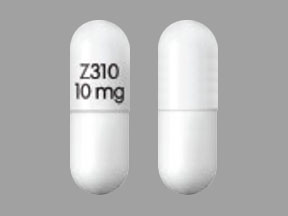
Hydrocodone ER Coupons & Savings Card – Discount Prices from $159.42
Generic for: Hysingla er
My prescription
Edit
10MG, Hydrocodone ER (60 Capsule Extended Release 12 Hours)
Select pharmacy

CVS
$223.27
COUPON PRICE
Walgreens
$159.42
COUPON PRICE
Albertsons
$512.74
COUPON PRICE
Walmart
$525.71
COUPON PRICEHydrocodone ER savings card
Show this card to your pharmacist
Walgreens
$159.42
BIN
ID
PCN
GRP
015995
LHKPX841328
GDC
DR33
Powered by
More prescriptions for pain
More prescriptions for pain
Price history for Hysingla ER (brand) & Hydrocodone ER (generic)
60 Capsule Extended Release 12 Hours, 10MG
Average retail price for Hysingla ER
Average retail price for Hydrocodone ER
Average SaveHealth price for Hydrocodone ER
Our price history data is based on aggregated prescription data collected from participating pharmacies in America. Our prescription data updates daily to reflect the latest price changes. If you notice a missing data point, it means there wasn't sufficient data available to generate a monetary value for that date.
We analyzed Hydrocodone ER prices for (10MG, 60 Capsule Extended Release 12 Hours) over the last 12 months. The average retail price was $617.25, while the average price using the SaveHealth discount card was $422.38. That's a savings of approximately 31.57% when using our Hydrocodone ER coupon.
Compared to the generic version, Hysingla ER had an average price of $674.18 over the same time period. With the SaveHealth savings card, Hydrocodone ER is 37.35% cheaper on average than Hysingla ER.
*Retail prices are based on pharmacy claims data, and may not be accurate when we don't have enough claims.
Hydrocodone ER dosage forms
Dosage Quantity Price from Per unit 10MG 60 Capsule Extended Release 12 Hours $223.27 $3.72 10MG 10 Capsule Extended Release 12 Hours $52.46 $5.25 10MG 14 Capsule Extended Release 12 Hours $66.13 $4.72 10MG 20 Capsule Extended Release 12 Hours $86.62 $4.33 10MG 30 Capsule Extended Release 12 Hours $120.78 $4.03 15MG 28 Capsule Extended Release 12 Hours $113.95 $4.07 15MG 30 Capsule Extended Release 12 Hours $120.78 $4.03 15MG 56 Capsule Extended Release 12 Hours $209.60 $3.74 15MG 60 Capsule Extended Release 12 Hours $223.27 $3.72 15MG 120 Capsule Extended Release 12 Hours $428.23 $3.57
| Dosage | Quantity | Price from | Per unit |
|---|---|---|---|
| 10MG | 60 Capsule Extended Release 12 Hours | $223.27 | $3.72 |
| 10MG | 10 Capsule Extended Release 12 Hours | $52.46 | $5.25 |
| 10MG | 14 Capsule Extended Release 12 Hours | $66.13 | $4.72 |
| 10MG | 20 Capsule Extended Release 12 Hours | $86.62 | $4.33 |
| 10MG | 30 Capsule Extended Release 12 Hours | $120.78 | $4.03 |
| 15MG | 28 Capsule Extended Release 12 Hours | $113.95 | $4.07 |
| 15MG | 30 Capsule Extended Release 12 Hours | $120.78 | $4.03 |
| 15MG | 56 Capsule Extended Release 12 Hours | $209.60 | $3.74 |
| 15MG | 60 Capsule Extended Release 12 Hours | $223.27 | $3.72 |
| 15MG | 120 Capsule Extended Release 12 Hours | $428.23 | $3.57 |
| 20MG | 10 Capsule Extended Release 12 Hours | $56.42 | $5.64 |
| 20MG | 14 Capsule Extended Release 12 Hours | $71.67 | $5.12 |
| 20MG | 30 Capsule Extended Release 12 Hours | $132.66 | $4.42 |
| 20MG | 56 Capsule Extended Release 12 Hours | $231.78 | $4.14 |
| 20MG | 60 Capsule Extended Release 12 Hours | $247.03 | $4.12 |
| 30MG | 14 Capsule Extended Release 12 Hours | $71.67 | $5.12 |
| 30MG | 28 Capsule Extended Release 12 Hours | $125.04 | $4.47 |
| 30MG | 30 Capsule Extended Release 12 Hours | $132.66 | $4.42 |
| 30MG | 56 Capsule Extended Release 12 Hours | $231.78 | $4.14 |
| 30MG | 60 Capsule Extended Release 12 Hours | $247.03 | $4.12 |
| 40MG | 4 Capsule Extended Release 12 Hours | $32.45 | $8.11 |
| 40MG | 28 Capsule Extended Release 12 Hours | $125.04 | $4.47 |
| 40MG | 30 Capsule Extended Release 12 Hours | $132.66 | $4.42 |
| 40MG | 60 Capsule Extended Release 12 Hours | $247.03 | $4.12 |
| 40MG | 90 Capsule Extended Release 12 Hours | $361.39 | $4.01 |
| 50MG | 24 Capsule Extended Release 12 Hours | $118.32 | $4.93 |
| 50MG | 30 Capsule Extended Release 12 Hours | $143.33 | $4.78 |
| 50MG | 45 Capsule Extended Release 12 Hours | $205.84 | $4.57 |
| 50MG | 60 Capsule Extended Release 12 Hours | $268.36 | $4.47 |
| 50MG | 90 Capsule Extended Release 12 Hours | $393.38 | $4.37 |
